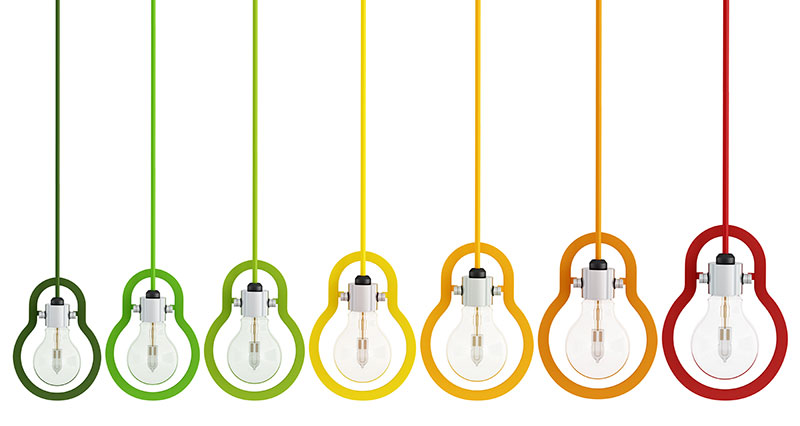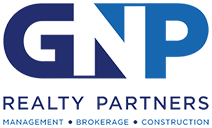
For condo owners, there’s no better way to contribute to your community than making energy efficiency upgrades or helping raise awareness of the importance sustainable efforts can have on the community’s environment and well-being.
Such upgrades are especially important in a condo community as energy efficient improvements not only cut costs for individual homeowners but can benefit the entire community. As an HOA property management company, we strive to improve our network of condo communities by prioritizing such efforts as they help make operations and maintenance efforts more efficient while increasing home values and the quality of life for those who live there.
We encourage you to see if community-wide buy-in can not only cut costs for your community’s homeowners, but help promote better planning for building upgrades along with smart allocation of the available budget. Here are a few options to discuss this spring with your condo board from the GNP Realty HOA property management team.
Want to learn more about Property Management?
Request Information | or Call Us at 312-329-8400
Reasons to be Green
There are several benefits to having a green or energy-efficient home, including:
- Lower utility bills: Energy-efficient appliances and building materials can help reduce the energy needed to heat and cool your home, resulting in lower utility bills.
- Increased comfort: Energy-efficient homes are better insulated and sealed, which can help maintain a consistent temperature and improve overall comfort.
- Environmental benefits: By using less energy, a green or energy-efficient home reduces the amount of greenhouse gases emitted, which can help mitigate the effects of climate change.
- Increased property value: Energy-efficient homes are becoming more desirable to buyers and can increase the value of your property.
- Tax incentives: Many governments offer tax incentives for homeowners who invest in energy-efficient upgrades.
How Energy Efficient is my Condo?
There are several ways to determine the energy efficiency of your condo, such as:
- Home Energy Audit: Hire a professional energy auditor to assess your condo’s energy efficiency. They will perform a thorough inspection of your home and provide recommendations for improvements.
- Energy Star Rating: If your condo building is Energy Star certified, you can look up the building’s energy performance on the ENERGY STAR website.
- Utility bills: Compare your utility bills to those of similar-sized condos in your area to get an idea of your energy usage.
- Condo association: Ask your condo association if they have information on the energy efficiency of the building.
- Smart Energy Monitors: Install smart energy monitors in your home to track your energy consumption and identify areas where you can make changes to improve energy efficiency.
- Building codes: Review the building codes used in the construction of the building\;, newer buildings tend to be more energy efficient than older ones.
- Certifications: Check if your building has any certifications such as LEED, BREEAM, or ENERGY STAR certifications; these certifications are a good indication of energy efficiency.
How to Calculate the Efficiency of your Home
There are several ways you can calculate the efficiency of your home:
- Home Energy Rating System (HERS) Index: A HERS index is a standardized method for measuring the energy efficiency of a home. It rates a home on a scale of 0 to 150, with 0 being a net-zero energy home and 150 being a standard home built to code. The lower the HERS index, the more energy efficient the home is.
- Energy Use Intensity (EUI): EUI is a measure of a home’s energy consumption per square foot. It is calculated by dividing the home’s total energy consumption by its total square footage. The lower the EUI, the more energy efficient the home is.
- Annual Fuel Utilization Efficiency (AFUE): AFUE is a measure of the efficiency of a home’s heating system. It is calculated by dividing the amount of heat produced by the amount of fuel consumed. The higher the AFUE, the more efficient the heating system is.
- Annual energy cost: Calculate your annual energy cost by multiplying your monthly energy bill by 12. Use this number to compare it with similar-sized homes in your area or after making energy-efficient upgrades to your home.
- ENERGY STAR rating: If your home has an ENERGY STAR rating, use the rating to compare the energy efficiency of your home to other in your area.
Design the Right Energy and Water Strategy for Your Property
No property is exactly the same as another, yet we sometimes think about energy management as though there are one-size-fits-all solutions. Nothing could be further from the truth. Your condominium will face energy challenges completely distinct from those just down the street. That’s why it makes sense to start by crafting a unified and integrated utilities strategy before making changes.
Some steps you can perform to ensure you create an appropriate power and water strategy include:
- Conducting an energy audit
- Determining that you are procuring your utilities in the most cost-effective way possible
- Providing ongoing analytics regarding building energy and water use
- Performing a cost-benefit analysis of proposed solutions
- Running feasibility studies of proposed solutions
- Discussing potential changes with residents prior to implementing them
How to Save Energy: Green Solutions for Your Condo
Even if your condo is older and energy efficiency new construction isn’t an option, you can still help create energy efficient apartments and condos in your building. An obvious first step involves common areas. While management can encourage changes in resident-owned units, they have much more leeway with common areas. While we discuss some of these green solutions in more detail below, common energy-saving steps include installing:
- High-efficiency lighting and ballasts
- Low-flow, water-efficient toilets
- Energy-efficient air handlers
- High-efficiency boilers
- Heat reflectors
- Fresh insulation
- Seals around draft-prone areas
An environmentally friendly/ENERGY STAR checklist boils down to two things: 1) replacing energy- or water-inefficient appliances with those that perform better and 2) making sure structural or appliance-related degradation doesn’t lead to energy waste. Efficiency strategies will vary, but their particulars always lead back to these two points.
Beware of Phantom Power: Effects and Costs
One of the greatest energy concerns in apartments and homes is phantom power. Fortunately, phantom power is also one of the easiest inefficiencies to remedy. What is it? In essence, phantom power happens when devices remain in standby mode, while otherwise powered off, continue to draw current. Media-related appliances such as televisions, stereo speakers, computers, laptops and gaming consoles are common culprits. Chargers and smart appliances also drain electricity constantly.
Some academics have measured phantom power’s impact and costs. A study from the University of Oregon’s Department of Architecture stated, “With the growing popularity of ratings systems to quantify energy use in buildings, the ability to effectively measure and minimize plug loads has become increasingly important. Phantom loads, by definition, are not used to perform a primary device function. Reducing these loads is one of the easiest ways of cutting plug loads.” The hypothesis for this study was that phantom power loads would consume more than 25% of total energy use metered.
Managing phantom power often falls to residents rather than management. The condo association should let residents know that automatic outlet timers are a great way to improve their energy efficiency, and residents should put them to use.
Upgrade Your Light Bulbs
Replacing existing incandescent light bulbs with CFLs or LEDs is a small change that can dramatically impact energy usage in individual condos and common areas. In addition to the reduction in energy consumed (up to 75%!), this upgrade can make a substantial dent in each condo owners’ energy bill and allow for association fees to be used towards other community improvements, instead of electric bills.
Manage Water More Effectively
Being more mindful about water usage can also contribute to the environment and help cut costs closer to home. Discussing these practices during monthly board meetings, with the support of your HOA property manager if need be, can help improve awareness of the cause and get more people on board with prioritizing community changes. A few ways to reduce water usage in quantity and expense include:
- Using the cold cycle when washing clothing
- Installing smart showerheads to reduce the amount of water used per shower
- Turning down the temperature of your water heater
- Purchasing an insulation blanket for your hot water heater to prevent heat loss and stop cold air from penetrating the tank
- Urging condo owners to report leaky taps and running toilets immediately
Replace Your Windows
Upgrading windows is one of the most impactful energy upgrades a condo owner can make, although the total investment is usually rather extensive. When windows get old, they lose their ability to seal. This lets cool air out during summer months and warm air out in winter months. At the very least, inquire with your HOA community manager if there are funds available to replace windows in shared areas so that, in part, heated and cooled air can be retained in common areas of the building or facility.
Energy Efficient Appliances
When appliances, such as washers and dryers, refrigerators, dishwashers, toilets and even some air conditioners die, replacing them with energy efficient versions can help minimize the use of electricity, water and other energy resources. In addition, these energy-rated appliances will help cut both shared and community-wide energy bills. Even “smart” thermostats can be pre-programmed to adjust the temperature based on the time of day, ambient room temperature and expected use.
Partnering with Your HOA Property Management Company to Make Energy Efficiency a Priority
If your condo board is not currently talking about options to decrease community costs, bring up the topic at your next meeting. From posting friendly reminders in common areas to getting your entire community’s support for long-term energy efficient plans, every little bit counts!
Quick Tips
And speaking of every little bit helping, let’s discuss some quick tips that both condo residents and managers can implement in order to conserve energy while maximizing comfort. These tips include:
- Turn down the thermostat while you sleep. Lowering the temperature will not only will help conserve energy, it may also ensure that you rest better. A study in the journal La Presse Médicale found that people generally slept better when the temperature was below 70 degrees Fahrenheit.
- Weatherstrip your windows and draft-proof your outlets. While weatherstripping windows is an obvious energy-saving step, draft-proofing outlets with foam gaskets, caulk or putty also helps.
- Wash your clothes on cold. ENERGY STAR house plans place a heavy focus on the laundry room. Unless a load absolutely requires it, don’t wash in warm or hot water.
- Seal off your window-unit air conditioner. Window units are far less efficient than central AC, but if you absolutely must use one, ensure that it’s well-sealed.
- Shorten your shower. Sailors practice aptly named “Navy showers” during which they turn off the water while lathering up. You don’t have to change your showering habits that much, but shortening shower time saves water and energy.
- Don’t block air registers and radiators. Blocking registers keeps room temperatures lower or higher than they should be.
- Don’t rinse your dishes before putting them in the dishwasher. Pre-washing dishes impedes your detergent’s cleaning action and wastes a significant amount of water.
- Keep your blinds down in the summer. Want to make sure that the AC isn’t constantly cycling? Draw the curtains!
- Attend to leaky faucets or constantly running toilets. ENERGY STAR program requirements for some water-based appliances require automatic leak detection. It’s no wonder why: Leaks waste immense amounts of water. Don’t ignore dripping faucets or constantly running toilets.
- Put rugs down on wood floors. Rugs not only look great, but they also keep your feet warm when everything is cold outside.








